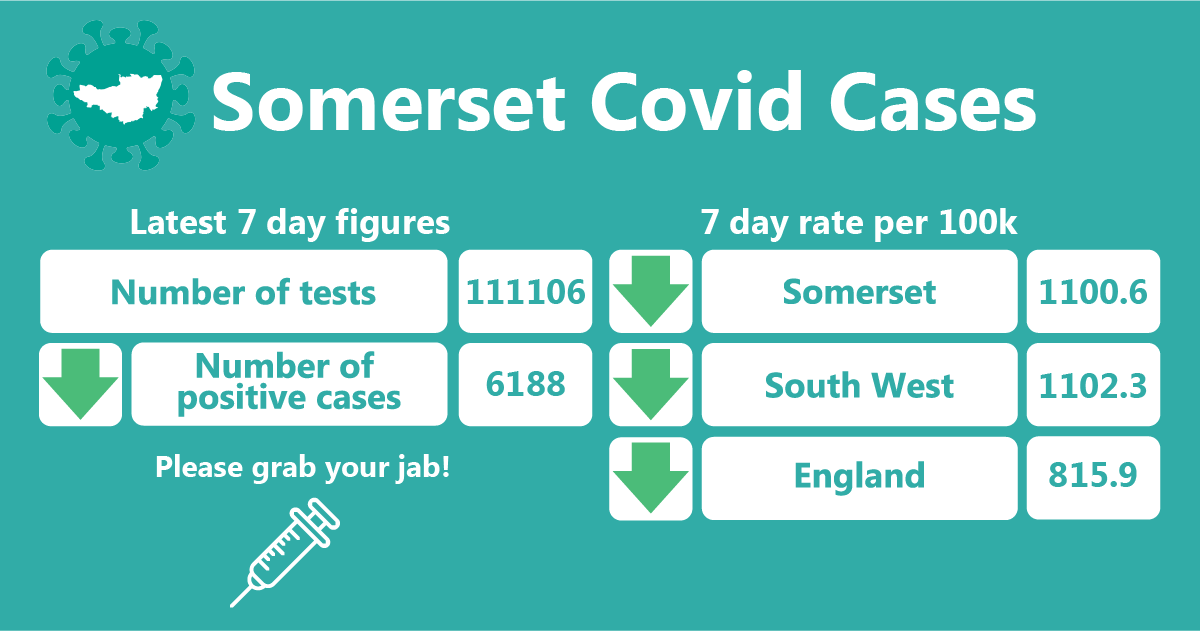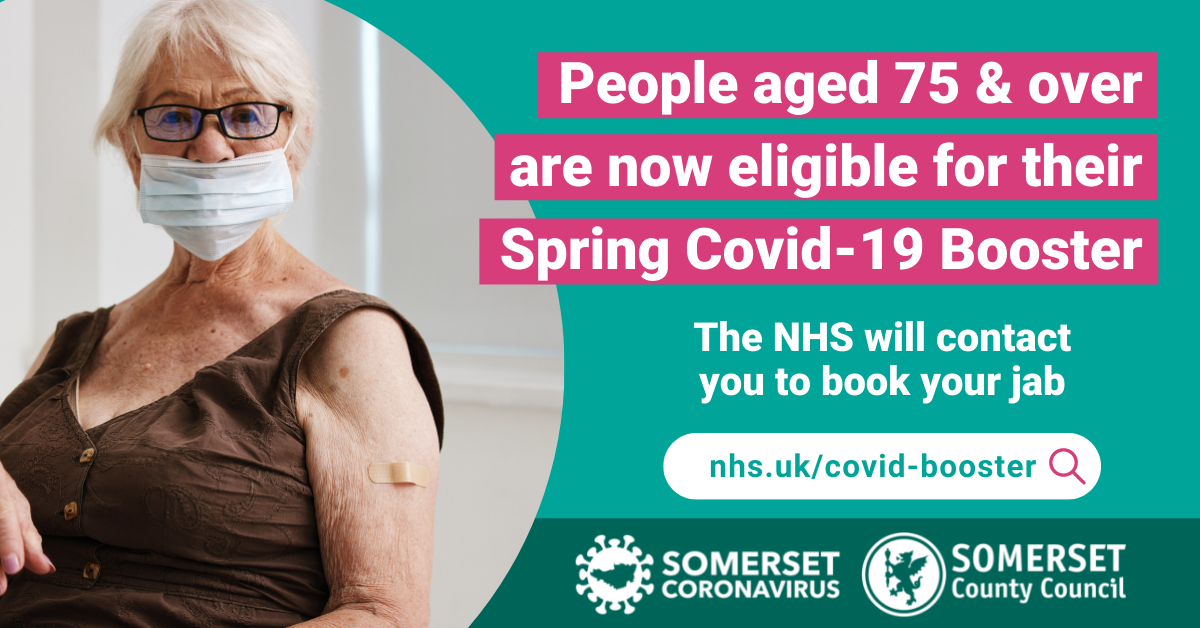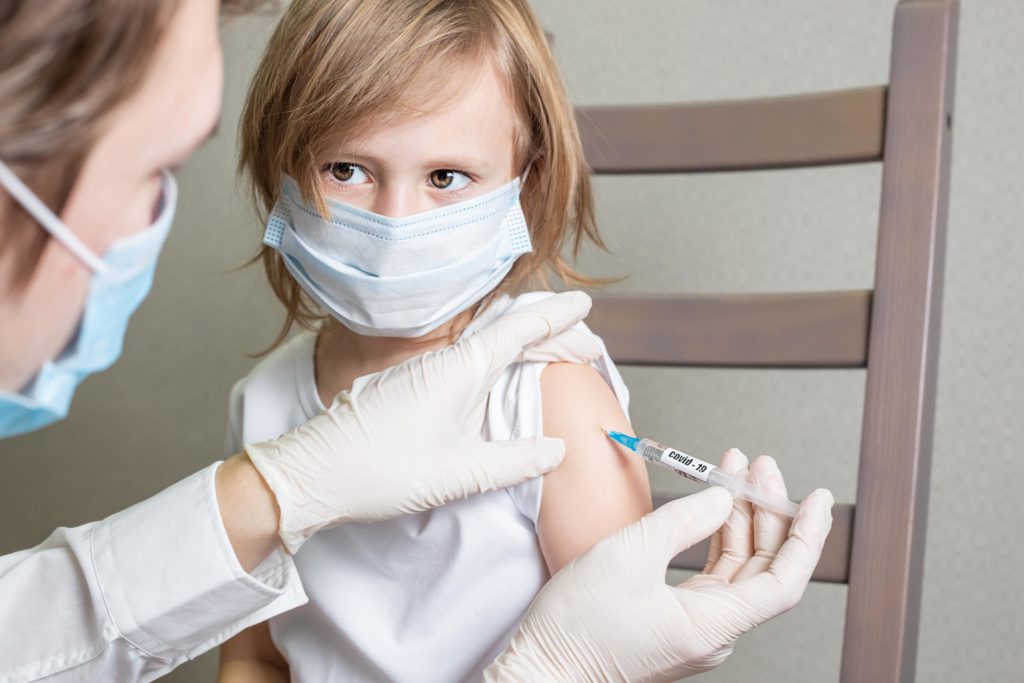|
|

|
Somerset's Covid-19 Update
Tuesday 5 April 2022
|
|
|
Welcome to the latest edition of the weekly Somerset Covid-19 update for key stakeholders and subscribers. This update is produced on behalf of the Somerset County Council Public Health Team and is designed to provide a weekly update on the current Covid-19 situation in Somerset.
|
|
Please note that this is the last Stakeholder Update in this form, and this will now become a monthly update on Public Health initiatives including any new updates on Covid-19 guidance. If you no longer wish to subscribe to this publication, please unsubscribe below.
|
|
|
|
|
|
|
|
Case numbers remain very high, and continue to have an impact on our essential services. We should all continue to do all we can to help prevent the transmission of Covid-19, especially to the most vulnerable in our communities.
|
This update will look at the latest information that has been announced around Living Safely with Covid, as well as setting-specific updates, including:
|
- Living Safely with Covid
- Schools, Workplace and Care settings
- Vaccinations Update
- Testing Update
- Mental Health Support
- Resources and Further Information
|

|
|
|
|
‘Remember, everyone can catch it, anyone can spread it.’
|
|
|
|
Somerset Covid Cases
|
|
|

|
In the week ending 1st April, approximately 111,106 tests were carried out across the county. This is a reduction on previous weeks, but lateral flow testing is no longer free of charge to the public. There were 6,188 new confirmed cases identified by these tests. The rates of Covid-19 in Somerset remain very high at 1100.6 per 100,000. This is just below the South-West average, but considerably higher than the national average.
|
|
Hospitalisation data for Somerset has increased by a significant amount over the last week to around 226 Covid-19 in-patients in Somerset hospitals. The majority of these patients are not ill with Covid-19 but have been detected through routine screening on hospital admission.
|
|
|
|
|
|
|
|
Living Safely with respiratory infections, including COVID-19
As we learn to live safely with coronavirus (COVID-19), there are actions we can all take to help reduce the risk of catching COVID-19 and passing it on to others. These actions will also help to reduce the spread of other respiratory infections, such as flu, which can spread easily and may cause serious illness in some people.
|
There are simple things you can do in your daily life that will help reduce the spread of COVID-19 and other respiratory infections and protect those at highest risk. Things you can choose to do are:
|
- Get vaccinated.
- Wear a face covering or a face mask.
- Let fresh air in if meeting others indoors.
- Stay at home if you have symptoms
- Cover your coughs and sneezes
- Practise good hygiene:
If you have symptoms of a respiratory infection, such as COVID-19, and you have a high temperature or do not feel well enough to go to work or carry out normal activities, you are advised to try to stay at home and avoid contact with other people
|
|
|
|
|
|
Schools & Early Years
|
Behavioural Science Study – Surveys Live Until 10th April
|
Thank you to everyone who has completed the survey so far. It is great seeing so many responses; we really appreciate the time staff and parents are taking.
|
- To find out how parents feel about making the decision whether to send their child to school if they are unwell with certain symptoms.
- For education staff to explore how they feel communicating these messages to parents.
|
|
|
The focus is on the consideration of these decisions with the removal of all Covid restrictions. It is not based on the current guidance or the guidance over the past two years.
|
The Behavioural Science Unit and Public Health team plan to use views collected to help support schools and make sure we are providing the most useful advice to help with the current pressures. All responses will be anonymous. Both surveys have been shared with schools via the weekly Schools’ Bulletin.
|
|
Chicken Pox and Scarlet Fever in Children
|
|
Chickenpox and scarlet fever are two routine childhood infections which are currently seeing some resurgence; both are considered to be common, mild and of low public health risk.
|
|
In most situations, schools and childcare settings do not need to contact the UKHSA South West Health Protection Team (HPT) about cases of chickenpox in their setting. Routinely, outbreaks (two or more cases) of scarlet fever should be reported to the HPT so that the appropriate support can be provided, including advising parents to take children to the GP for antibiotic treatment where required.
|
|
However, coinfection of both chickenpox and scarlet fever carries an increased risk of complications due to invasive infection and requires more proactive management to prevent or mitigate the risk of severe disease.
|
|
In response to regional intelligence, Dominic Mellon Deputy Director for UKHSA and Trudi Grant, Director of Public Health Somerset have written a letter advising schools and early years settings of the required actions, this has been shared with early years settings and schools in Somerset. Please download the letter here.
|
|
|
|
|
Update to Testing Guidance from 1st April
|
As testing is no longer available free of charge, it is recommended that education and childcare settings follow the advice for the general public. Routine asymptomatic testing is no longer recommended.
|
Adults with a positive Covid-19 test (bought or free LFD test) result should stay at home and avoid contact with other people for 5 days, which is when they are most infectious. For children and young people aged 18 and under, the advice is 3 days.
|
|
DHSC Symptomatic testing (PCR testing) sites in Somerset closed on Wednesday 30th March.
|
|
|
|
|
Somerset County Council Public Health process
|
In the coming weeks, mainstream childcare and education settings will manage Covid as an Acute Respiratory Infection (ARI), in line with other infectious diseases. The DfE contingency framework and operational guidance for managing Covid has now been withdrawn. Management of Covid as an ARI will be incorporated into health protection guidance: health protection in schools and other childcare facilities guidance.
|
Adults with the symptoms of a respiratory infection, and who have a high temperature or feel unwell, should try to stay at home and avoid contact with other people until they feel well enough to resume normal activities and they no longer have a high temperature.
|
Children and young people who are unwell and have a high temperature should stay at home and avoid contact with other people. They can go back to school, college or childcare when they no longer have a high temperature, and they are well enough to attend.
|
|
Due to the very high rates of Covid in the community and operational challenges still being faced by schools, SCC Public Health recommend that education and childcare settings continue to follow current advice to the end of term.
|
|
|
|
Workplaces
|
Revised guidance has been issued by the government on managing Covid-19 and other respiratory infections such as flu in the workplace:
|
|
|
|
|
|
Covid now presents with a very wide range of symptoms, similar to other respiratory infections, so without testing it is not possible to know if symptoms are of Covid, or flu, or a common cold for example. Covid case numbers in Somerset are at record levels, so there remains a significant risk of contracting Covid, and thus a significant risk to business continuity if a large proportion of staff are sick at any one time and isolating. Although it is no longer a legal requirement to isolate as a case or contact, many of the controls that businesses have had in place will remain important in reducing risks to business continuity, including workers isolating while symptomatic and good workplace ventilation.
|
|
In relation to absence and sick pay, employers will need to consider whether their policies enable workers to isolate when symptomatic, and if not whether workers will feel they have no financial choice but to work when symptomatic, and if that is the case the implications for business continuity should there be widespread illness in the workforce.
|
|
|
|
Care Settings
Outbreaks of Covid-19 remain high in care settings across Somerset. It remains crucial for those working in and visiting loved ones in care settings to follow Infection Prevention and Control measures, use of PPE, ensure adequate ventilation and ensure staff, including any new personnel take up the offer of vaccination, including boosters.
|
|
In line with the National move to Living with Covid, there have been some changes taking effect this week affecting the care sector. Previous guidance documents for testing and other aspects of manging Covid-19 in care setting have been replaced with:
|
|
|
|
|
This summary clearly provides the changes made, using examples of the previous guidance and what the new guidance now involves:
|
|
|
|
|
|
|
|
There are bookings and walk-in clinics available NOW across Somerset.
|
|
|
|
|
|
|
As legally mandated restrictions are being lifted, our first lines of defence like vaccination become even more vital. Vaccines remain our primary mitigating measure against severe disease and illness from Covid-19.
|
Every vaccine matters and there are plenty of walk-in and bookable slots available across the county over half-term. It’s quick, easy, and open to everyone 12+ for 1st, 2nd or booster doses.
|
You can also pre-book an appointment. To do this, visit www.nhs.uk/Covid-Vaccination or call 119 for an appointment. The helpline has over 200 languages available if you or someone you know requires an interpreter
|
Over 80% of eligible residents have received two doses of the vaccination. The Vaccination Programme is working with health and community partners to identify locations for mobile vaccination pop-up clinics. By localising the offer, the programme aims to reduce barriers to access and better understand community needs.
|
|
|
|
|
|
|
|
|
9am-5pm*
(closing at 4pm 15/4)
|
|
|
High Street, Bridgwater, TA6 6JE
|
|
|
Bridgwater Community Hospital
|
|
Every Sunday in April*
(closed Easter Sunday 17/5)
|
|
|
|
Bower Lane, Bridgwater, TA6 4GU
|
|
|
|
Tues 12th April
Weds 20th April
|
|
|
|
Fore Street, Chard, TA20 1GR
|
|
|
|
|
|
|
Market Yard, Justice Lane, Frome, BA11 1BE
|
|
Clarks Village
(Alfred Gillet Trust Building)
|
|
Sat 16th April
Mon 18th April
|
|
|
|
Outlet Shopping Village, Farm Road, Street, BA16 0BB
|
|
|
Crewkerne Henhayes Centre
|
|
|
|
|
South Street, Crewkerne, TA18 8DA
|
|
|
|
|
|
|
Moorland Hall, Wheddon Cross, Minehead, TA24 7DU
|
|
|
|
Thurs 14th April
Thurs 28th April
|
|
|
|
Grenville House, Rhode Lane, TA6 6JE
|
|
|
|
Sat 9th April
Sat 23rd April
|
|
|
|
Market Way, Bridgwater TA6 6DF
|
|
|
Minehead Community Hospital
|
|
Every Tuesday in April
Every Saturday in April
|
|
|
|
Luttrell Way, Minehead TA24 6DF
|
|
|
Priorswood Community Centre
|
|
Sat 16th April
Sat 30th April
Sat 14th May
Sat 28th May
Sat 11th June*(2pm-6pm only)
Sat 25th June
|
|
|
|
13-14 Priorswood Place, Taunton, TA2 7JW
|
|
|
|
Weds 13th April
Weds 27th April
|
|
|
|
Community Hub, Fairfax Road, Bridgwater, TA6 4HX
|
|
|
Wellington Community Hospital
|
|
|
|
|
Bulford Lane, Wellington, TA21 8QQ
|
|
|
Wiveliscome Community Hall
|
|
Weds 6th April
Weds 13th April
Weds 27th April
|
|
|
|
West Street, Wiveliscombe, TA4 2JP
|
|
|
|
|
This clinic closed on 31st March & will relocate to Abbey Manor Health Centre from 6th April.
|
|
|
|
|
Local walk in centres can be found here.
|
|
Spring Covid-19 vaccine for most vulnerable
|

|
|
|
|
|
Vaccination for 5 -11 year olds - not clinically at risk
|
Although the in-school Covid-19 vaccination programme for 12 to 15 year olds has ended, they are still able to access the vaccine outside of school, at a vaccination centre, pharmacy or walk-in centre. Healthy 5 to 11 year olds are now being offered the Covid-19 vaccine. Vaccinations will take place outside of school, in vaccination centres, pharmacies and GP surgeries. Parents of 5 to 11 year olds will receive a letter from the NHS with further information on the vaccine.
|
|
|
|
|
Information for parents and carers on Covid-19 vaccination for at risk 5 to 11 year olds:
|
Children aged five to 11 years old who are clinically at risk from coronavirus, or who live with someone who is immunosuppressed, are now eligible for a lower, paediatric dose of the Covid-19 vaccine. All eligible children will have been contacted by their GP or local NHS inviting them to book an appointment through a local booking system at their GP practice or a nearby vaccination centre. At the moment, this group will not be able to book through the national booking system.
|
For 5 to 11 year old and 12 to 15 year old vaccinations, please signpost parents to where they can book COVID-19 vaccination appointments online, at a vaccination centre or pharmacy. Both bookings and walk-ins can be accessed for 12 to 15 year olds now, bookings will open up for 5 to 11 year olds from the beginning of April (not walk in).
|
Please note: If a child has tested positive for Covid-19 and is not at high risk from Covid-19, they need to wait 12 weeks before they can have a Covid-19 vaccine. This starts from the date they had symptoms, or the date of the positive test if they did not have symptoms.
|
|

|
|
|
|
|
|
|
Free universal symptomatic and asymptomatic testing for COVID-19, for the general public, came to an end on the 31 March 2022, in line with the move to the Living with COVID-19 strategy. Certain groups will still be offered free testing, as listed below, however we can still play our part in practicing safe behaviours to minimise the spread of COVID-19. This can mean:
|
- Making sure you are fully vaccinated
- Making sure you take care to avoid others as much as possible if you have COVID-19 symptoms or confirmed COVID-19
|
|
|
- Considering wearing a face covering in crowded or enclosed spaces while infection rates are high
- Regular hand washing and good hygiene like covering our mouth and nose when coughing and sneezing
|
|
|
Free tests for people who have COVID-19 symptoms will continue to be provided to the following groups, largely via the existing channels:
|
- NHS patients in hospital, who will be tested via the established NHS testing programme
- those eligible for COVID-19 antiviral and other treatments, who will be sent a pack of tests and can request replacements if they need them
|
|
|
- NHS staff and staff working in NHS-funded independent healthcare provision – the current lateral flow test ordering portal will remain available for this group to order their own tests
- Adult social care staff in care homes, homecare organisations, extra care and supported living settings and adult day care centres, as well as residents in care homes and extra care and supported living settings via the established organisation ordering portal
- Adult social care social workers, personal assistants, Shared Lives carers and CQC inspectors will be able to order tests from the current online lateral flow ordering system
- Staff and patients in hospices will be supplied tests by the hospice
- Staff and detainees in prisons and other places of detention will be supplied tests by the detention premises as currently happens
- Staff and detainees in immigration removal centres will be supplied tests, as currently happens, by the organisation concerned
- Staff and users of high-risk domestic abuse refuges and homelessness settings
During periods of high prevalence, asymptomatic testing will continue to mitigate risk. Testing will continue to be provided for:
|
- Adult social care staff and a small number of visitors providing personal care
- Hospice staff
- Patient-facing staff in the NHS and NHS-funded independent healthcare provision
- Some staff in prisons and other places of detention, and some refuges and shelters
|
|
|
|
|
Looking after your mental health:
|
The impact and experience of the COVID-19 outbreak has been different for everyone, as has how we have reacted, but there is no doubt that it has been a really difficult time for us all.
|
|
That's why it's so important to do what we can to look after our mental health and wellbeing, now more than ever.
|
|
|
|
The easing of restrictions has allowed us to get back to the people and things we love, but it's OK if adjusting has brought challenges too. You might be worried about the pace of the changes or what the future may bring.
|
|
If you need any help or advice around how to look after your mental health, Every Mind Matters has lots of free articles and resources that can help.
|
|
|
|
|
|

|
The Somerset Local Outbreak Management Plan outlines how we, the council, will work with the NHS Test and Trace Service, PHE, the NHS and other partners to ensure a whole system approach to preventing and managing local outbreaks. This can be found here.
|
Please like us on Facebook, follow us on Twitter and LinkedIn and share our posts with your networks to help us communicate these important messages.
|
We would really welcome your feedback on this email update, so please email any comments to the team using OGrant@somerset.gov.uk.
|
|
Finally, please follow Trudi Grant, our Director of Public Health’s Twitter account here.
|
|
|
|
|
|
|
|
|